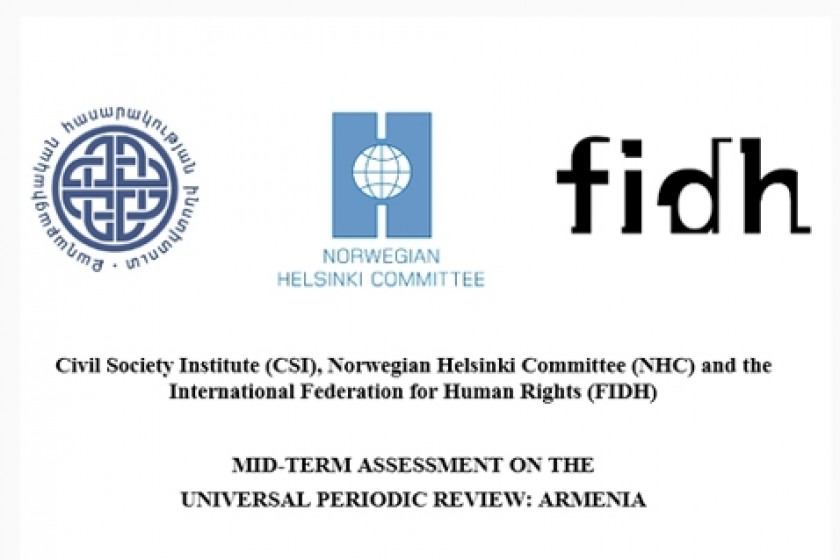
The Mid-Term Assessment on Human Rights in Armenia Submitted
Part 1. Torture and Ill-treatment
Recently, the Civil Society Institute (CSI), the Norwegian Helsinki Committee (NHC) and the International Federation for Human Rights (FIDH) have submitted a mid-term assessment (May 2010–December 2012) following recommendations by the United Nations Human Rights Council at Armenia’s Universal Periodic Review[1] in May 2010.
The assessment provides information on Armenia’s legal system and state practice, as discerned through recent monitoring activities undertaken by CSI and FIDH in cooperation with NHC on issues like the right to an effective remedy, judicial independence, the right to a fair trial, the prohibition of torture and ill-treatment, the penitentiary system and juvenile justice.
The Armenian state authorities have taken some steps to amend national legislation, such as drafting a new Criminal Procedure Code, introducing some amendments to the Criminal Code, and developing programs and policies for judicial reform; however, in practice Armenia has not made real progress in fulfilling its human rights obligations.
Reviewing the issue of torture and ill-treatment, the assessment highlights a number of problems. The definition of torture in the Criminal Code falls short of the requirements of the UN Convention against Torture (UN CAT) ratified by Armenia as far back as 2006. The routine use of torture and ill-treatment, especially in police custody, continues unabated.
Victims of torture do not file official complaints fearing retaliation, and perpetrators are not held accountable for such acts. On the rare occasion that cases have been reported, no thorough, independent or effective investigations have been conducted. The courts continue to accept evidence obtained using alleged torture and ill-treatment. Victims of torture and other human rights violations lack access to effective remedies.
CSI, NHC and FIDH have provided respective recommendations on all the above issues and call upon the state authorities to redouble their efforts to implement the recommendations and voluntary pledges explicitly undertaken by Armenia during its Universal Periodic Review in 2010.
[1] The Universal Periodic Review has been created under the auspices of the UN Human Rights Council and involves a review of the human rights records of all UN Member States as well as declaration on actions taken to improve the situations in their countries and to fulfill their human rights obligations.
 Videos
Videos Photos
Photos




Write a comment